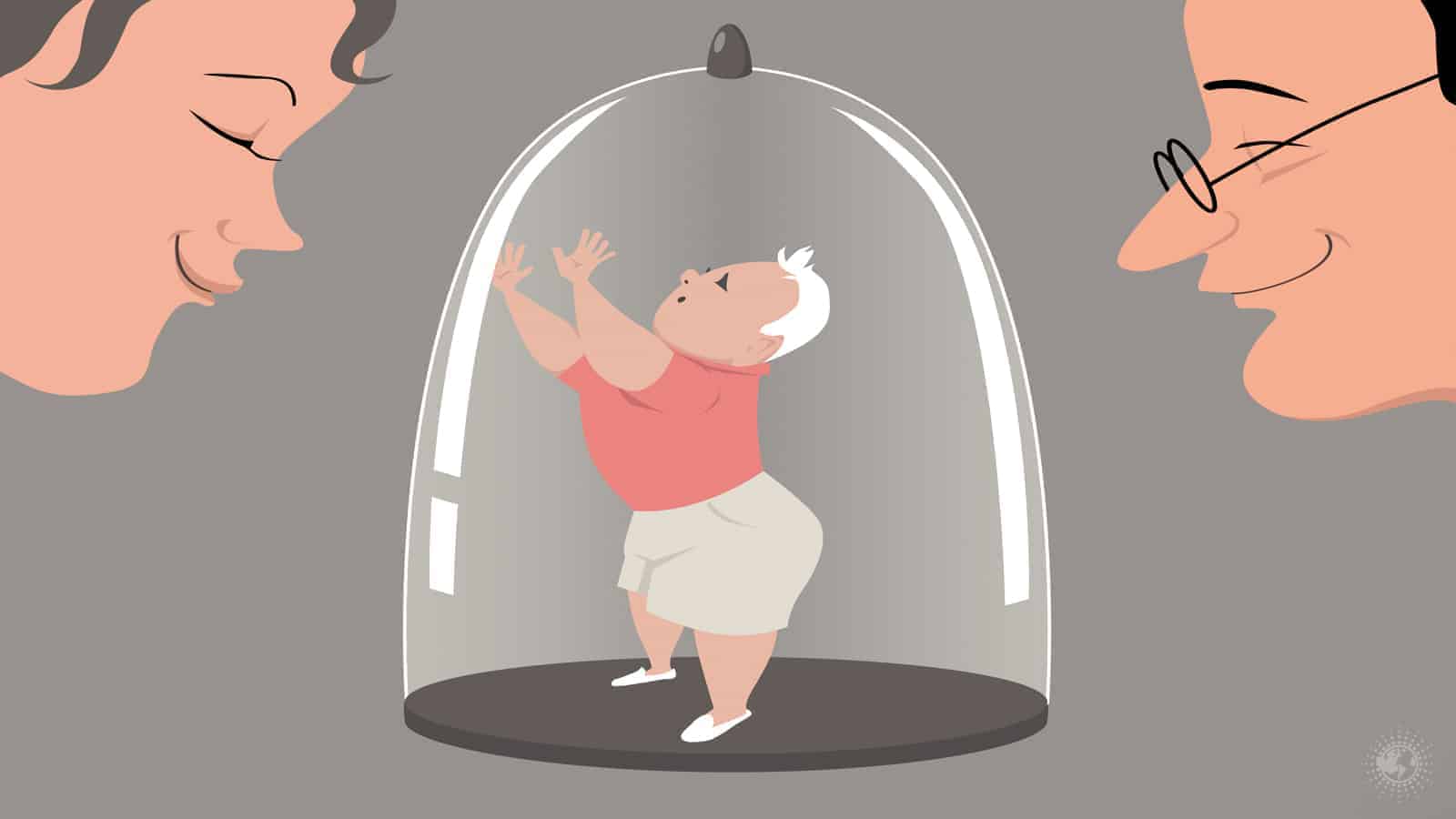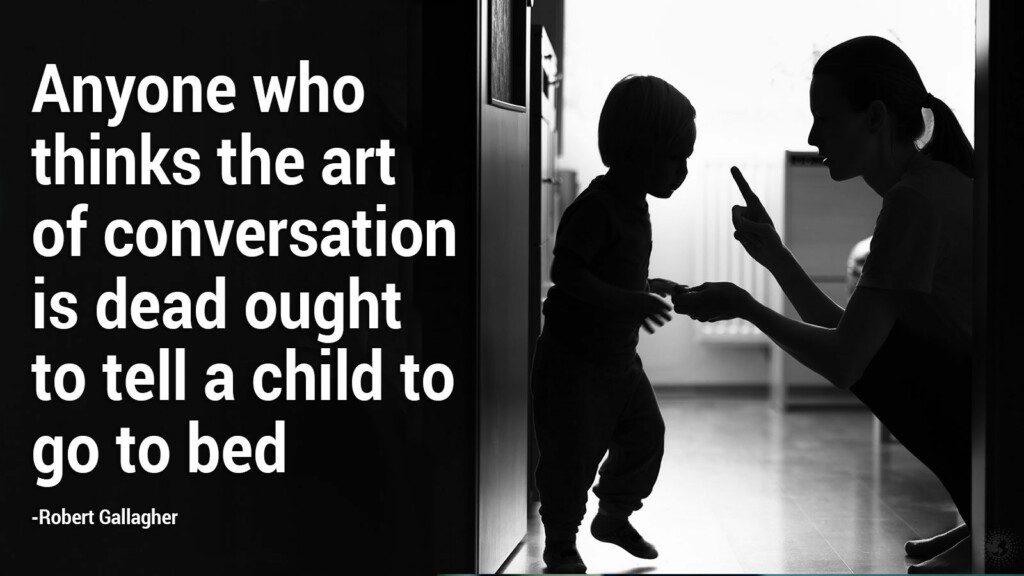Parents need to be involved in their child’s life. However, you can become over-involved, and it can do more harm than good. Don’t become a helicopter parent.
Did you know that you can stunt your kid’s development as well as damage their self-confidence when you do too much for them? You should enjoy parenting rather than be a bundle of nerves at every move they make.
You’ve probably heard of the term “helicopter parent.” It was a saying derived from a book written by Jim Fay and Foster Cline. The book’s goal was to highlight how a child’s development can suffer when a parent is overly involved in things that they should be doing for themselves.
Do you think that you’re a helicopter parent? Well, no one wants to admit their shortcomings.
12 Signs You’re A Helicopter Parent
Has negativity been ingrained into your brain that you’re afraid your child will open the door to a dangerous stranger, turn to drugs, or eat raw cookie dough and become deathly ill?
The cause isn’t as important as what these hovering, helicopter ways are doing to the next generation. If you think you may be suffocating your children, here are some signs that you’re a helicopter parent who needs to get their anxiety in check.
1. You Pick Out Your Kids Clothes
It’s okay to pick out your children’s clothes for the first few years, but if you’re still picking out your preteen or teenager’s clothes, you need to stop! Give your children a choice in what they wear. While parents need to give some input on clothes for modesty, let them have the power to choose what they wear.
2. Your 5-Year-Old Has a SmartPhone
There is almost no reason that a young child needs a smartphone. If you gave your kindergartener a phone so that they can call you when they get to school, then your anxiety is in overdrive. Giving a child a phone at such a young age is only asking for trouble.
Additionally, do you know how many times they will lose or break a cell phone? It’s not a good move to give a young kid a phone. Studies show that kids are ready for a phone between 10-13 years of age.
3. You Do Your Child’s Homework
Parents should always help their children with their homework. You must also realize that they probably won’t do that art or writing project with the quality that you would. However, it would be best if you don’t do their work for them.
You must help them and show them what needs to be done on any assignment, but you should take a step back and let them do the work. If you’re completing your child’s work because you feel that they aren’t doing a good job, you may be a helicopter parent.
4. You Never Leave Your Kid Alone with Anyone
During the first couple of years of a child’s life, it’s reasonable to be at their beck and call. However, when your child is 12, and they still have never stayed with anyone but you, then there’s a problem.
You must understand that your anxious nature is keeping them from experiencing things beyond your control. Leave them with grandma, grandpa, or their other parent. You’re smothering this kid.
5. You Don’t Let Your Child Go to Anyone’s Home
We live in scary times. Sure, you must be cautious about turning your child loose at another person’s home. However, visiting a friend for playdates is an essential part of being a child.
While every household in your neighborhood is not safe for your child, there are plenty of responsible parents who will watch over your little one. If your kid’s friend can only come to your house to play, you may be crossing the line.
Children need to experience how other people live, and you deny them some great memories if you don’t let them have these experiences.
6. You Placed Cameras All Over the House
Do you have cameras set all over the house, and there’s no good reason? It’s acceptable to have a couple of security cameras in your entrances for protection. However, there should never be a camera in the bathroom or your child’s bedroom.
Your children deserve some privacy. There is nothing that screams helicopter parents like watching them in HD 24 hours a day. It’s just not healthy behavior (for you or them!).
7. You Cut Up Your Preteens Food
Some foods should be cut into smaller bites to prevent a child from choking. It would be best if you never gave a three-year-old big piece of steak, chicken, or pork chops. However, if you’re still cutting the meat for your 13-year-old, then it’s an issue.
Teach your child the appropriate way to use a knife. Yes, they may cut themselves, but the chances are slim if you show them and let them do it in the right direction. Do you expect your child to go through life, never using a knife to cut their food?
8. You Don’t Let Your Child Ride the School Bus
Some younger kids love to ride the big yellow school bus. When they turn into teenagers, they would instead be taken to school. If your child is not allowed to ride the school bus because you are afraid of what might happen to them, you’re smothering them.
If there is a situation where they are being bullied or have an extra-long ride because you live far from the school, then those situations are different. You can’t live in fear of all the “what ifs” in life. Let them experience what it’s like to ride the bus, and let them decide if they like it or not.
9. Your Kid’s Teacher Frowns When You Enter the Classroom
You can and should be concerned about your child’s education. Teachers want more parents to be involved in the aspects of their kid’s schooling. However, they don’t want to hear all the things that they should do differently.
They also don’t want a weekly call or letter because you feel you must tell them all about how they can do their job better. Be involved, but not too involved in your kid’s education. Your behavior could backfire and make your child miserable.
10. You Have CPS on Speed Dial
Helicopter parents often have CPS on speed dial as they are continually reporting minor offenses with other children. Of course, these offenses affect your child as this is a student or friend, and you feel it’s your civic duty.
While some situations should be reported when a child is in danger, someone giving a child a soda and candy bar for lunch is not worth calling the authorities.
11. You Clean Their Room
Your child needs to learn the responsibility of keeping their room clean. It’s acceptable to help a child under five with making their bed, but they can pick up their toys even at a very young age.
They need to know how to keep their room tidy as it will help them when they have their home in adulthood. You’re not always going to be there to pick up their dirty clothes and make their bed. Give your child the power to clean their space and hold them accountable for it.
12. You Fight Your Child’s Battles
Some children will keep bullying and other social situations from their parents because they’re afraid of how you will react. There are absolutely some situations where a parent must intervene on behalf of their child. However, you also need to allow them to work out their problems with your guidance, but without your interference.
Remember, they will have to learn how to put the bully in their place as they will face them throughout life. You can’t always be there, and you won’t be there when they’re grown and facing the same situations at work. They must learn to tackle their giants without your interference.
Final Thoughts on Breaking the Cycle of Being a Helicopter Parent
You want your children to be well-rounded and successful in life. If you do too much for them and don’t allow them the freedom to make mistakes, you are doing them a great disservice. Many parents are smothering because they feel that they are not needed and want to be as important in their child’s life as they were as an infant.
Other parents are so full of anxiety and tension that they cannot imagine letting their child go regardless of age. You must get your hovering tendencies in check as you can cause your child development problems and socially stunt their growth. These harmful behaviors will follow them through life.
Your child will always need you, but you must learn how to step back and let them grow and learn, as well as make mistakes.





















